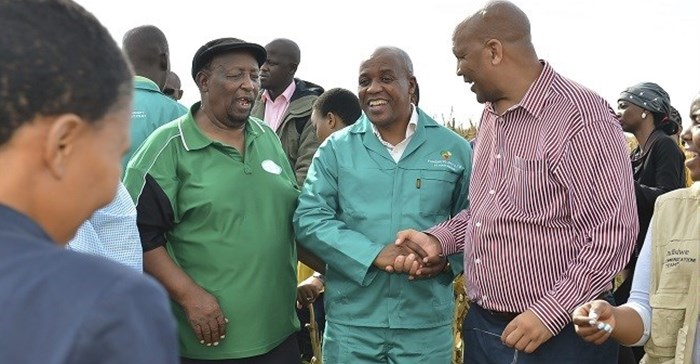
Top stories






More news













“Companies do not recognise communities as real partners. They need to be open to them so they understand shareholder expectations,” says king of Bakgatla-Ba-Kgafela nation, Kgosi Pilane.

In the past, local inhabitants were relegated down the list of priorities and if investment was made into the community, it was not always because that need had been expressed by the community. And with the new dispensation and the introduction of legislation, an expectation was created that this would change.
The government, the mining company and communities are partners in this scenario and they all have a role to play with their own responsibilities, but the difficulty comes in defining the responsibilities of the parties. The failure of government to provide basic services such as infrastructure, health and education has meant that the onus to provide these services is falling to the mines. “This has created a moving target and what this does is drive up the cost of mining, which pushes up the cost of capital which leads to a loss of jobs. This is the cycle we are currently in,” says Andrew Mitchell, partner: Fasken Martineau.
For example, in Rustenburg, communities live in poverty with little access to basic amenities such as housing, and there is little going on in these communities that mining companies can boast about, says John Capel, executive director, Bench Marks Foundation. “The challenges are bigger and the communities are missing out so it is small wonder they are constantly rising up and protesting.”
He believes that what should be happening is sustainable development from a mining community side, not a commodity side.
The only way for this to happen is for the mining company to understand the community. “The experience generally has been that the company wants to impose its culture on a community, which does not understand it. Companies expect the community to dance to its tune because they are the ones coming with the money,” says Pilane.
When engaging the community there are many stakeholders and everyone has to be consulted – no-one can be left out. At the same time, you need to be aware of their agenda as some individuals have their own agenda. This can be an onerous task for the mine.
Communities are also not homogenous; they have different needs and there is no one size fits all. “You cannot cut and paste social and labour plans (SLP) but we see this all the time,” Capel explains.
Mining companies need to engage with the communities, not just come in and do what they think needs to be done. They must communicate constantly. “The relationship between communities and companies is built around the mine, not here in Johannesburg at head office. Generally, the mining companies do a pretty good job. Too often though, we only hear the bad news,” says Mitchell.
At worst for communities, this has meant that they agree to things that has an unexpected long-term effect that they did not foresee, such as the impact of mining on their land, their livelihood, health and well-being.
